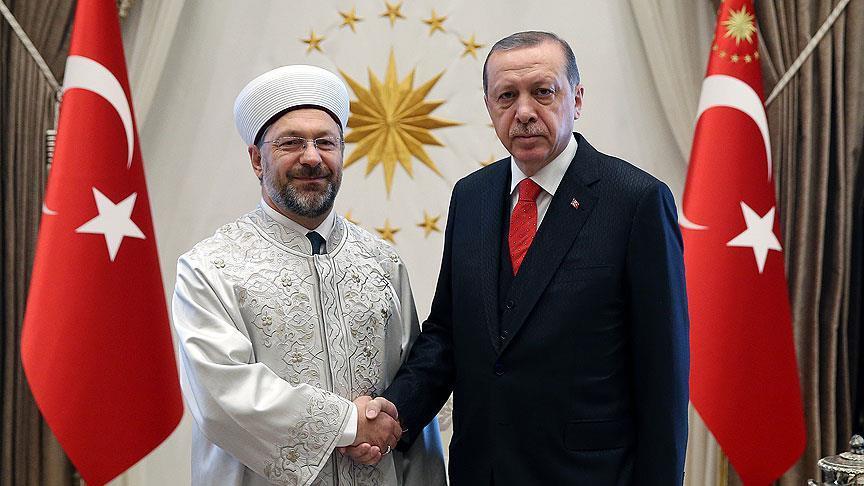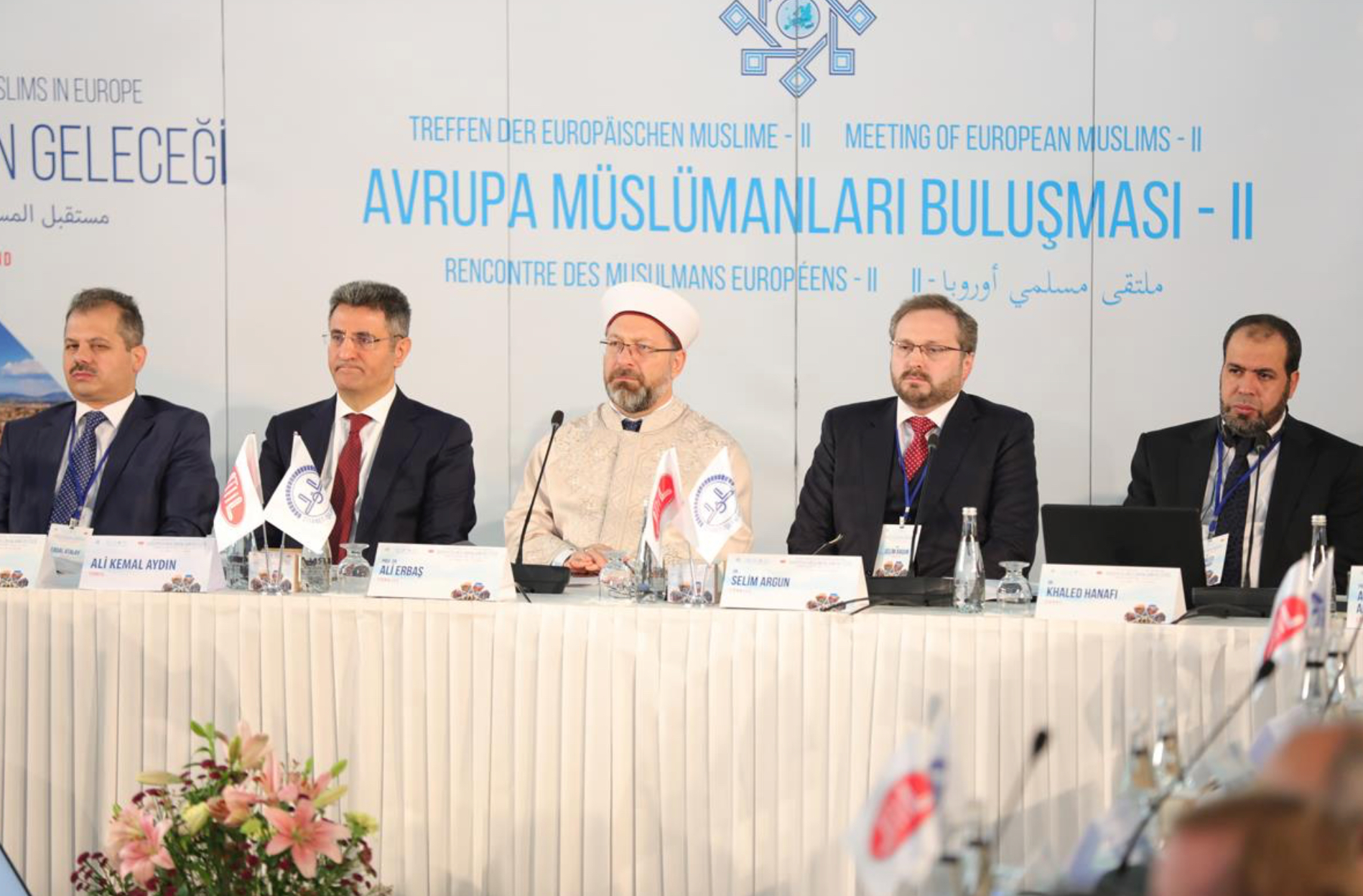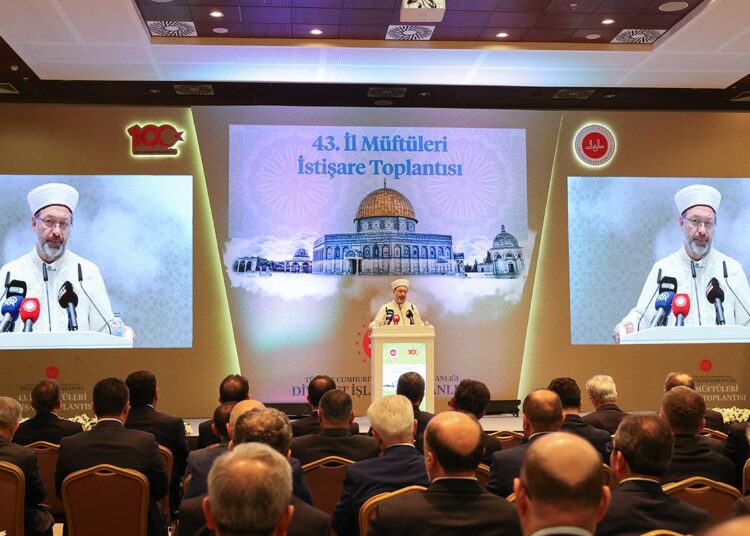Levent Kenez/Stockholm
Turkey’s controversial Religious Affairs Directorate, commonly known as the Diyanet, saw its budget approved in parliament last week, increasing from TL 35.91 billion ($1.2 billion ) in 2023 to an astounding TL 91.83 million ($3.18 billion). This substantial rise comes at a time when the nation is grappling with significant economic challenges.
As of September 2023 the Diyanet boasted a powerful and extensive network, overseeing 89,327 mosques in Turkey and hundreds more abroad. The organization employs a staggering 141,149 personnel, with a primary focus on imams who play a crucial role in religious services and community engagement. This vast infrastructure highlights the Diyanet’s significant presence both domestically and internationally, further emphasizing its role as the key player in religious affairs.
In previous years the Diyanet frequently came under scrutiny for its extravagant expenditures. Despite having its own meeting and seminar facilities across the country, controversies arose over the institution’s choice to rent luxurious hotels for meetings and events. Additionally, the use of high-end official vehicles owned by the Diyanet has been a subject of debate. The Diyanet’s controversy over renting a luxury yacht for a television program on Diyanet TV during the month of Ramadan drew public criticism and sparked discussions beyond traditional media channels.
Recent reports have cast a shadow over the Diyanet’s financial management practices. In the first nine months of 2023 the directorate nearly depleted its entire 12-month budget, expending an unheard-of TL 34.6 billion. This surpasses the spending of 26 public institutions, including the ministries of interior, energy and natural resources, environment and urbanization, trade and foreign affairs as well as culture and tourism.

Despite these substantial expenditures, the Diyanet submitted a budget proposal for 2024 that seeks a a nearly 300 percent increase, requesting a budget of TL 91.8 billion. A closer look at the breakdown reveals that TL 77.6 billion will be allocated for personnel expenses, with an additional TL 2.5 billion earmarked for goods and services procurement.
In the Diyanet’s Financial Status and Expectations Report published earlier this year and obtained by Nordic Monitor, it was noted that there was a significant increase of 98.52 percent in personnel expenses for the first six months of 2023 compared to the same period of 2022.
According to other data in the report, the Diyanet had allocated a budget of TL 35.91 billion for activities planned to be carried out in 2023. However, there is a projected expenditure of TL 50.48 billion for these activities by the end of the year.
In June the Diyanet continued its activities, having received additional allocations from the central budget.
Beyond its budget, the Diyanet engages in extensive financial activities, generating substantial revenue through Hajj and Umrah pilgrimages, contributing funds to the Turkey Diyanet Foundation (TDV) and holding undisclosed investments. The TDV, initially established as a charitable organization, has been transformed into a multifaceted entity overseeing global mosque projects and operating various businesses.
The Diyanet, initially established by the Turkish state to counteract radicalism, has undergone a fundamental transformation during Turkish President Rece\p Tayyip Erdogan’s 22-year rule, evolving into a significant instrument for propagating political Islam, reminiscent of the ideology of the Muslim Brotherhood, both within Turkey and internationally. Since 2016 the Erdogan government has summarily and arbitrarily purged approximately 3,000 personnel from the Diyanet, replacing them with individuals who embrace Erdogan’s political Islamist ideology.
The Erdogan government’s aggressive utilization of the Diyanet to advance its political objectives has elicited responses from foreign governments, leading to bilateral controversies. For instance, Diyanet-operated mosques in Europe were embroiled in a scandal in 2016, when Turkish imams were discovered to have been engaging in spying activities targeting critics and opponents of the Erdogan administration. A document surfaced during that time revealing that the Diyanet had conducted surveillance on individuals associated with the Gülen movement, a group critical of the Erdogan government, across 38 countries, including Switzerland, the Netherlands, Germany, Norway and Austria.
In December 2016 Turkey had to recall Yusuf Acar, the religious affairs attaché at the Turkish Embassy in The Hague after Dutch authorities accused him of gathering intelligence on Gülenists. Similarly, Belgian authorities rejected the visa applications of 12 Turkish imams seeking to work in the country in 2017.
The government of the central German state of Hessen ended its cooperation with the Turkish-Islamic Union for Religious Affairs (Diyanet İşleri Türk İslam Birliği, or DITIB) in 2020. “The doubts about the fundamental independence of DITIB from the Turkish government could not be resolved,” said then-Minister of Culture Alexander Lorz. DITIB, the German branch of the Diyanet and a religious arm of Erdogan’s Islamist regime, controls imams sent by the Turkish government to European countries.
Despite facing diplomatic challenges, the Erdogan government persists in employing imams as operatives to further its political agenda abroad. It is actively involved in expanding the influence of this religious network in foreign countries.

The Diyanet has initiated a special project aimed at training groups of imams who were born and raised in European countries and hold citizenship there. These selected students from various European nations are brought to Turkey to pursue religious studies at theology faculties, benefiting from a scholarship program sponsored by the Diyanet. This initiative, the “Uluslararası İlahiyat Programı” (International Theology Program), accommodates hundreds of students.
Diyanet’s report on financial expectations in 2023:












